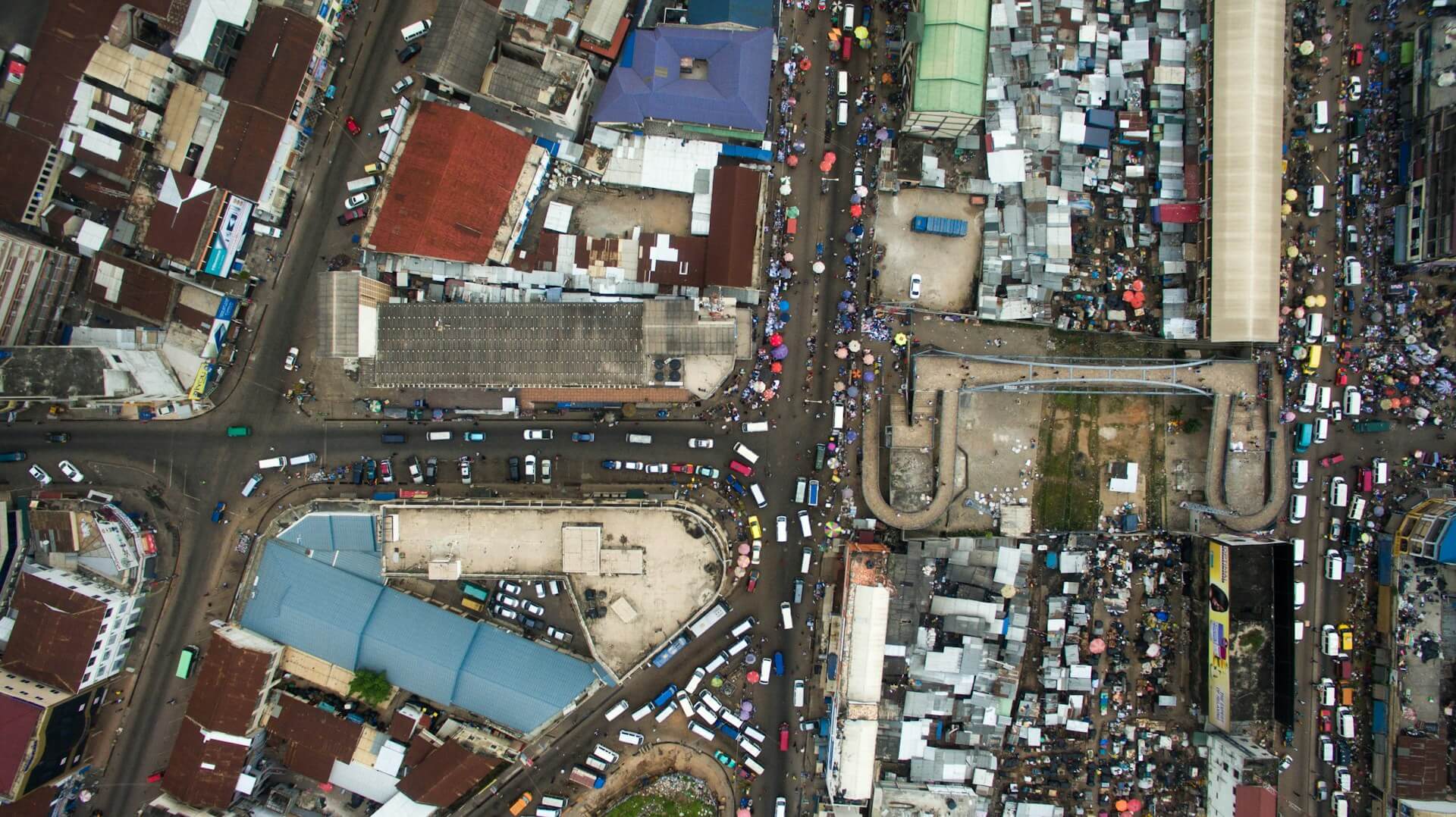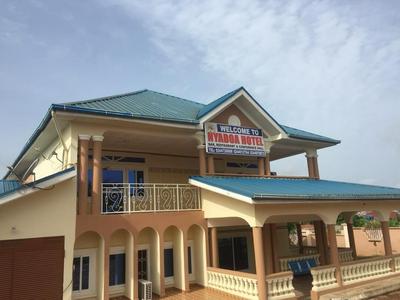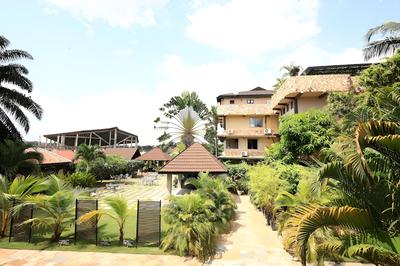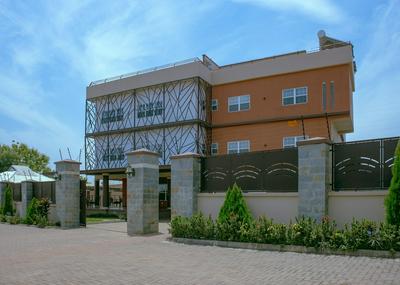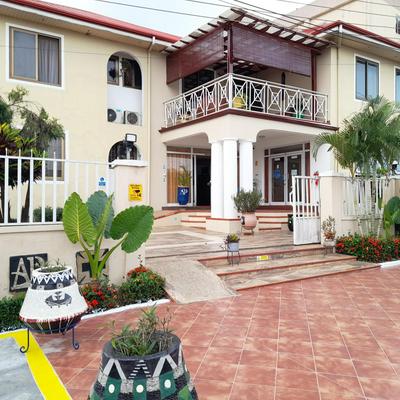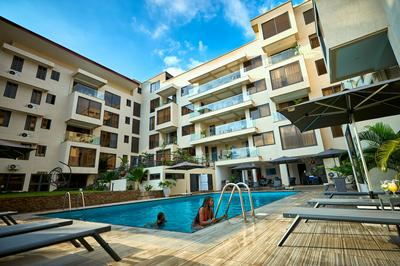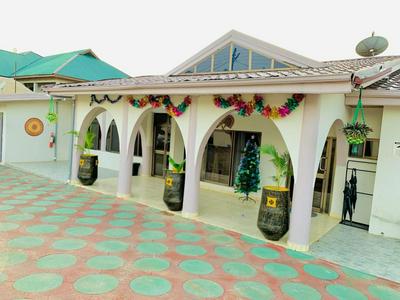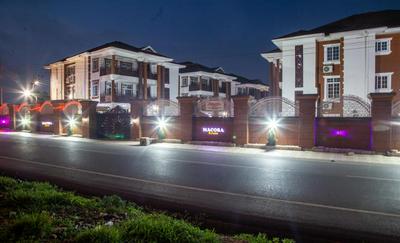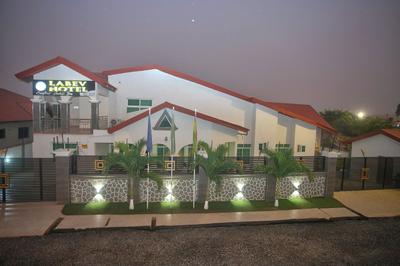When to visit Kumasi?
Kumasi, located in the heart of Ghana, offers a warm tropical climate conducive to year-round travel. However, the best times to visit are from November to March during the dry season, when humidity is lower and temperatures range between 18°C to 30°C (64°F to 86°F), making outdoor activities enjoyable. The rainy season, spanning April to October, brings heavy rains and humidity, peaking in June and September. Although visitors can experience lush landscapes during these months, outdoor plans might be interrupted by showers.
Summer (June to August) sees a surge in local travel as many enjoy the holidays. Spring (March to May) marks the transition to rains; it's cooler yet humid, ideal for exploring indoor attractions such as the Kumasi Cultural Centre. Autumn (September to November) is a great time to witness vibrant festivals, with local culture thriving. To avoid crowds and high hotel rates, consider planning your visit outside major holidays.
How to get to Kumasi?
Kumasi is well-connected by air, road, and rail, making it accessible from various parts of Ghana. The main entry point is Kumasi International Airport, which offers domestic flights from Accra, Ghana's capital, taking about 1 hour. From the airport, you can take local taxis or shuttle services directly into the city.
If you're traveling by bus, several companies like STC and VIP operate comfortable services from Accra, Takoradi, and other major cities, with travel times varying from 4 to 6 hours. For a unique experience, the train service from Accra to Kumasi is also available, taking approximately 12 hours, allowing you to enjoy scenic views. Those who prefer driving can enjoy a road trip, as Kumasi is linked to the national highway network. Expect about 3 hours from Accra by car.
Tourist activities in Kumasi
Kumasi is rich in culture and history, providing numerous activities for all interests. Explore the bustling Kejetia Market, one of the largest open-air markets in West Africa, where you can feast your eyes on vibrant textiles, spices, and local crafts. History enthusiasts will love the Manhyia Palace Museum, home to the Ashanti Kings' memorabilia. For nature lovers, the Kumasi Botanical Gardens offers peaceful walks and beautiful flora.
Nightlife is vibrant too, with local bars and music venues where you can enjoy live performances. Nearby Lake Bosomtwe is excellent for outdoor activities like hiking and picnicking. Museums, traditional drumming workshops, and cultural festivals are also enticing attractions that showcase the rich traditions of the Ashanti people.
Events and festivals
Kumasi hosts several vibrant events and festivals throughout the year reflecting the rich culture of the Ashanti people. One of the most significant is the Akwasidae Festival, celebrated every six weeks, where the Ashanti King connects with his subjects, and colorful parades fill the streets. The Odonson Festival in March celebrates the new harvest with music and dance, drawing locals and tourists alike. Another highlight is the Ashanti Cultural Festival, usually held in September, which features traditional food, arts, and crafts.
In addition to these, Kumasi is home to various markets throughout the week that offer cultural experiences and local products, including the famous Kejetia market. Participation in these events allows visitors to immerse themselves fully in Kumasi's culture and traditions.
Family and kids activities
Kumasi is a family-friendly destination with activities that cater to children of all ages. The Kumasi Zoo, though smaller than some, provides an opportunity for kids to see local wildlife. The Kumasi Botanical Gardens also serves as a great outdoor space where families can enjoy picnics, go on nature walks, and appreciate the gardens' beauty.
Museums such as the Manhyia Palace offer educational experiences about the Ashanti Kingdom, sparking curiosity in young minds. For a fun day indoors, the various craft markets present opportunities for children to engage in cultural exploration while trying their hands at traditional craft-making activities. Various parks are scattered across the city, providing safe and fun areas for children to play.
What to see in Kumasi?
Kumasi is filled with attractions that capture both the historical and cultural essence of the city. Must-see highlights include:
- Manhyia Palace Museum: The former palace of the Ashanti Kings, it showcases royal regalia and memorabilia.
- Kejetia Market: One of the largest open-air markets in West Africa, it’s a sensory explosion of colors and life.
- Kumasi Cultural Centre: A hub of traditional art, crafts, and performances showcasing Ashanti culture.
- Kumasi Fort: A historical site that offers insights into the past and is home to the Ashanti Museum.
- Lake Bosomtwe: This beautiful lake, surrounded by hills, is ideal for day trips, picnics, and leisure activities.
- Kwame Nkrumah University of Science and Technology: An impressive institution worth visiting for its architecture and gardens.
Accommodation in Kumasi
Kumasi offers diverse accommodation options ranging from budget-friendly hostels to luxurious hotels. In the city center, options like the Golden Tulip Kumasi provide modern comforts and are convenient for exploring nearby attractions. Budget travelers can find cozy guesthouses and hostels scattered throughout the city, offering affordable rates without sacrificing comfort.
For those wanting a little more character, boutique hotels reflecting local culture and history are also available. Popular neighborhoods for accommodation include the city center for easy access to markets and restaurants, or more suburban areas which are quieter and suitable for families. The price range in Kumasi varies significantly, ensuring there’s something for everyone.
Important numbers and information
- Emergency Numbers: Police: 191, Ambulance: 193, Fire: 192
- Tourist Information Center: Adum, near the Kumasi Cultural Centre
- Main Hospitals: Komfo Anokye Teaching Hospital, Kumasi South Hospital
- Airport Contacts: Kumasi International Airport: +233 32 20 28663
- Public Transport Info: Access to information at major bus stations like Kejetia Bus Terminal
- Taxi Apps: Uber and Bolt are available in Kumasi
- Currency: Ghanaian Cedi (GHS), widely accepted cash usage
- Payment methods: Credit and debit cards accepted in most establishments, though cash is preferred in markets.
Where to eat?
Kumasi is a food lover's paradise. The city is known for its delicious local cuisine, including traditional dishes like fufu with light soup, jollof rice, and kelewele. Street vendors are abundant, offering affordable and tasty meals throughout the city. Areas like Central Market and Kejetia are perfect for sampling local street food.
Restaurants range from local chop bars serving up traditional favorites to international cuisine options. For a sit-down meal, head to places like the Twedie Restaurant or the popular Asanka Local to try authentic Ghanaian flavors. Overall, average meal prices can range from GHS 20-50 (roughly $3-$8), making dining in Kumasi quite budget-friendly.
Nightlife – where to go out?
Kumasi offers a lively nightlife scene that reflects the vibrant culture of the city. Areas like Adum and Suame are hotspots for entertainment, featuring bars, nightclubs, and live music venues. You can enjoy everything from high-energy dance clubs to laid-back lounges.
Popular spots include Club Manhattan, known for its energetic atmosphere and great music, and The Basement, a popular bar where locals gather for drinks and live performances. If you’re looking for something more upscale, check out the Gardenia Lounge, perfect for cocktails and mingling. The nightlife here has an inviting buzz, often accompanied by local music and a friendly crowd, giving visitors an authentic taste of Kumasi after dark.
Transport and taxis
Navigating Kumasi is straightforward, thanks to an array of public transport options. The city’s bus system, while not extensive, offers affordable travel, with fares around GHS 1-2 for commuters. Taxis are a popular choice and can be hailed on the street; always confirm the fare before your ride or use taxi apps like Uber for convenience.
Buses generally run from dawn until dusk, and routes can be in high-demand areas like Central Market. For a novel local experience, you can also use shared taxis known as 'trotros,' which are economical but can be tricky for first-time visitors. Always exercise caution and keep safety in mind, especially when traveling at night.
Parking and public garages
Parking in Kumasi can be a challenge, especially in busy areas like the Central Market. Street parking is available but often limited, and it’s important to look for designated parking zones. Public garages are available, but they can charge up to GHS 5-10 depending on the location and duration.
For visitors driving into the city, it’s wise to arrive early, especially for events or weekends when the city is most lively. Always ensure to lock your vehicle and keep valuables out of sight to minimize risks. Familiarizing yourself with local traffic rules and conditions can also enhance your driving experience in Kumasi.
Surroundings of Kumasi
The surroundings of Kumasi offer several fascinating destinations for day trips. One notable spot is the UNESCO World Heritage site of Asante Traditional Buildings in nearby Manhyia, showcasing the rich history of the Ashanti Kingdom. A short trip will take you to Lake Bosomtwe, perfect for swimming and other outdoor activities. This picturesque lake, situated in a crater, is about 30 kilometers from the city and offers various hiking trails around its perimeter.
Another great option is the village of Bonwire, famous for its Kente weaving. The artisans here produce some of the finest Kente cloth you'll find, and visitors can often watch the weaving process and shop for high-quality items. Other nearby attractions include the Bobiri Forest Reserve, known for its beautiful butterflies and hiking trails, making it a must-see for nature lovers.
